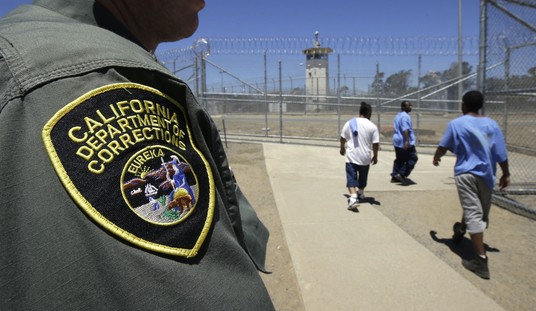The Saudis have not been coy about their intention to address the threat posed by a revisionist and potentially nuclearizing Iran.
While the West and the Obama administration, in particular, have been pursuing a deal with Iran that critics say ensures that the Islamic Republic will eventually develop an atomic weapon, Iran has been expanding its influence across the region. In Syria, Lebanon, Iraq, and Yemen, pro-Iranian proxies command the levers of power.
In response to this shift in the regional balance of power, Saudi Arabia and its predominantly Sunni Arab allies are pushing back militarily. In Yemen, a Saudi-led Arab military coalition is executing airstrikes against the Iranian funded and trained Houthi militia. On Thursday, reports indicated that the Saudis agreed to a deal with NATO-allied Turkey to support the rebels fighting against the Bashar al-Assad government, another Iran-backed proxy. And the rebel groups these two regional powers are supporting are anything but pro-Western secularists.
“The coordination between Turkey and Saudi Arabia reflects renewed urgency and impatience with the Obama administration’s policy in the region,” read a report in Today’s Zaman. “Saudi Arabia previously kept its distance and funding from some anti-Assad Islamist groups at Washington’s urging, according to Turkish officials. Saudi Arabia and Turkey also differed about the role of the international Islamist group, the Muslim Brotherhood, in the Syrian opposition. Turkey supports the group, while the Saudi monarchy considers it a threat to its rule at home; that has translated into differences on the ground – until recently.”
Both the Saudis and the Turks have been signaling their intention to secure their own nuclear futures as it becomes increasingly clear that the deal pursued by the P5+1 with Iran will only facilitate the eventual development of a bomb. On Thursday, Riyadh made its intention to participate in a nuclear arms race in the Arab world clear.
“While Saudi Arabia has long advocated a nuclear-free Middle East, its leaders are doubtful that the completed accord on limiting Tehran’s nuclear program will stop Iran from becoming a threshold nuclear-weapons power when proposed restrictions on is number of centrifuges and uranium stockpiles expire in 10 years,” The Wall Street Journal reported on Thursday. “They also aren’t willing to bet that the regime in Tehran will somehow become more moderate and responsible by then, a hope entertained by many in the West.”
“We prefer a region without nuclear weapons. But if Iran does it, nothing can prevent us from doing it too, not even the international community,” said Abdullah al Askar, a member and former chairman of the foreign affairs committee of Saudi Arabia’s advisory legislature.
“Our leaders will never allow Iran to have a nuclear weapon while we don’t,” addedIbrahim al-Marie, a retired Saudi colonel and a security analyst in Riyadh. “If Iran declares a nuclear weapon, we can’t afford to wait 30 years more for our own—we should be able to declare ours within a week.”
…
“Should Iran gain the ability to produce weapons-grade uranium and ability to deploy such weapons,” developing a Saudi capability in response “would be considered as part of our homeland security,” [Prince Faisal bin Saud bin Abdulmohsen] added. Iran claims it doesn’t seek nuclear weapons.
Some fear that the other powerful members of this regional dynamic, Turkey and Egypt, will feel compelled to pursue their own atomic weapons programs in order to secure their interests and control their spheres of influence. Given the fact that many international observers predicted accurately that a nuclear arms race in the Middle East was imminent if the West pursued a bad deal with Iran, nuclear proliferation in the Arab World is nigh-inevitable.
When he took office, the president and his supporters whined incessantly about the supposed mess of a Middle East that they were bequeathed by the last occupant of the Oval Office. It is grimly ironic that the nightmare in the Arab World with which the next president will struggle will pale in comparison to that which Barack Obama inherited from his predecessor.







Join the conversation as a VIP Member